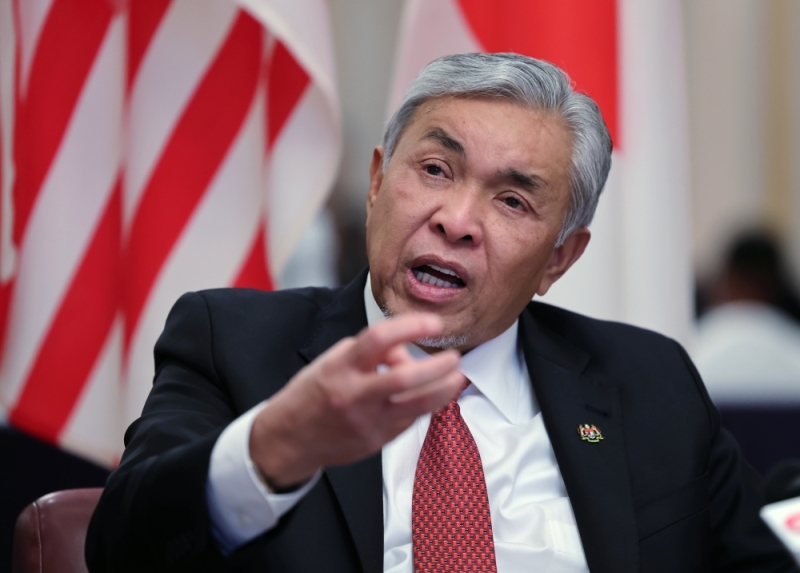
PUTRAJAYA, Feb 28 The proposal to mandate the purchase of 70 per cent halal and Bumiputera products for official government programmes will be presented at the upcoming Bumiputera Economic Congress (KEB) 2024 as a resolution to empower the halal industry, said Deputy Prime Minister Datuk Seri Ahmad Zahid Hamidi.
Speaking to Bernama, he said that another resolution to be presented was to implement the Halal Business Transformation programme through availability assessment activities and business guidance.
The proposed implementation of the Home-Grown Halal Champion Programme, which involved vendor development activities and business coaching in collaboration with multinational firms, would also be presented, said Ahmad Zahid.
“This programme includes expanding the policy of 30 per cent inclusion of bumiputra entrepreneurs’ products in the modern retail sector, involving large supermarkets, mini markets and local supermarkets.
“This initiative encompasses the guidance and development of 10 new Halal Championships for selected stock keeping units (SKU) products, spanning categories such as biscuits, instant noodles, canned food, coconut milk, and bakery,” he said when met recently.
Ahmad Zahid said the resolutions were the result of the recent KEB 2024 engagement session, which aimed at empowering the halal industry to position Malaysia as a global leader in the halal economy.
The Ministry of Economy, in collaboration with the Ministry of Rural and Regional Development (KKDW), will host KEB 2024, themed ‘Positive, Progressive, Innovative,’ at the Putrajaya International Convention Centre (PICC) for three days beginning tomorrow.
Meanwhile, Ahmad Zahid, who is also the Rural and Regional Development Minister, said that the halal industry contributed 7.9 per cent to the country’s Gross Domestic Product (GDP) in 2023, with exports totaling RM53.72 billion, making up 3.8 per cent of the nation’s total exports valued at RM1.43 trillion.
He said that as one of the industries with significant potential and value that contribute to the country’s socioeconomic growth, the government would take proactive steps to ensure that efforts to empower the halal industry continue.
Citing the establishment of the Halal Industry Development Council (MPIH) as an example, Ahmad Zahid, who assumed the role of MPIH chairman, emphasised MPIH’s pivotal role in driving halal industry development to be more inclusive and competitive on both domestic and international fronts.
According to Ahmad Zahid, MPIH serves as a crucial link bridging the jurisdictions of the federal and state governments, with a membership comprising 14 ministers, 13 menteris besar and chief ministers, the Chief Secretary to the Government, the attorney general, and the Investment, Trade, and Industry Ministry secretary-general.
Bernama



![UAE: 14th World Islamic Economic Forum in Abu Dhabi to Discuss Key Components of Global Economic Growth Event poster[27] copy](https://halalfocus.net/wp-content/uploads/2023/12/Event-poster27-copy-1-150x125.jpeg)